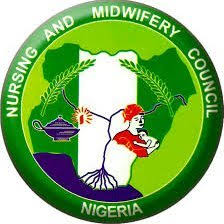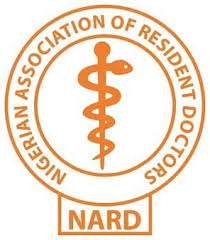COMMUNIQUE ISSUED AT THE END OF THE 43RD ANNUAL GENERAL MEETING/SCIENTIFIC SESSION OF THE NIGERIAN OPTOMETRIC ASSOCIATION (NOA) HELD AT THE CALABAR INTERNATIONAL CONVENTION CENTRE, CROSS RIVER STATE FROM 17TH JULY TO 20Th JULY 2019
THEME: "ACHIEVING UNIVERSAL ACCESS TO EYE HEALTH: THE WAY FORWARD"

Introduction:
Having met in the beautiful, ancient city of Calabar, Cross Rivers State to address one of the biggest concerns in eye health, to wit; the high prevalence of avoidable blindness in Nigeria, Optometrists from both public and private sectors of the Profession in Nigeria, outstanding national and international resource persons, academics from Optometry training institutions, the Optometry regulatory body, international eye health organizations, industry players in optics, ophthalmic drugs and consumables, speakers from different sub-specialties, student representatives; all gathered under the umbrella of the Nigerian Optometric Association to advance the discourse. During the three (3) days of plenary, presentations, workshops, and interactions, we aligned our discussions under the following action points to:
- Sustain Eye Care Delivery
- Conduct Evidence-based Research, Intervention, and Evaluation
- Pay Attention to Contemporary Issues and Advances in Optometry
- Create Awareness for Eye Health Issues
- Develop Action Plan for Human Resource in Optometry
- Seek Communities' Response to Achieving Universal Eye Health
Resolutions:
Having exhaustively discussed the above action points, we resolved that:
- More effective policies should be formulated and more impactful programmes designed to facilitate the full integration of Primary Eye Health into Primary Health Care in order to help achieve Universal Health Coverage
- Optometry Services be fully integrated into Primary Health Care in order to reduce the incidence of blindness and visual impairment in Nigeria
- More effective partnerships between Government and Non-Governmental Organisations, Captains of Industries, etc are needed in order to achieve Universal Health Coverage.
- There should be adequate provision of infrastructure and adequate security for health care professionals posted to rural communities and red flagged zones.
- The rising state of insecurity in Nigeria has thrown the country into a seemingly perpetual cycle of conflict and instability to the extent that the situation is being politicized to stir ethnic and religious tensions in the polity. As an entity, we condemn this in every ramification.
Recommendations:
In order to give action to the above mentioned resolutions, we herein recommend that:
- The Federal Government of Nigeria, the various states and Local Government structures should, as a matter of urgent national importance, increase respective budgetary allocations for the Health Sector to at least fifteen percent (15%) in line with the Abuja Declaration of 2001 where African countries resolved to allocate at least fifteen percent (15%) of their annual budget to health. This increase will, amongst other things, help in training and manpower development of eye care workers including Optometrists needed in order to achieve the Universal Health Coverage.
- The Federal Ministry of Health, the various State Ministries of Health and Hospital Management Boards should work assiduously towards Strengthening the Eye Care Team comprising all stakeholders in the eye care service delivery to achieve the Universal Health Coverage.
- The Federal Government of Nigeria, the various States and Local Government structures, Non-Governmental Organisations, Captains of Industries should see the need to provide Research Grants aimed at supporting the carrying out of Evidence-Based Research, Interventions and Evaluation. These will help in generating baseline and other data needed in achieving Universal Health Coverage.
- The Federal Government of Nigeria should urgently take steps to integrate the Residency Training of the Nigerian Post Graduate College of Optometrists into the regular Residency Programmmes of public health institutions, as a concrete step towards advancing human re source development in Optometry
- The Federal Government of Nigeria and the various State Governments and Local Government structures should employ more Optometrists in public health institutions and encourage them to work in rural communities by improving incentives, infrastructure and security.
- The Federal Government should take proactive and inclusive steps to mediate and deescalate the rising insecurity in the country, so as to restore lasting peace and stability in the country, which will in turn create the enabling environment for investment, social development and economic progress.
Conclusion:
Universal Eye Health will be best served if the services are available, accessible and affordable. The Federal Government of Nigeria, the various State Governments and the Local Governments should play their expected roles by providing security and infrastructure, employ adequate number of Optometrists and other eye health professionals; well distributed in the rural and urban areas. Eye care professionals should also play their roles by having the right skills, knowledge and attitude in order to deliver integrated, people-centred eye care, leaving no one behind.
Dr. Ozy Okonokhua
President
Dr. Ken Giwa-Amu
National Secretary




